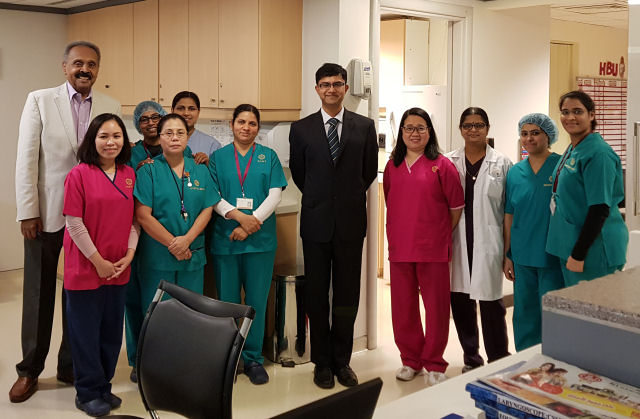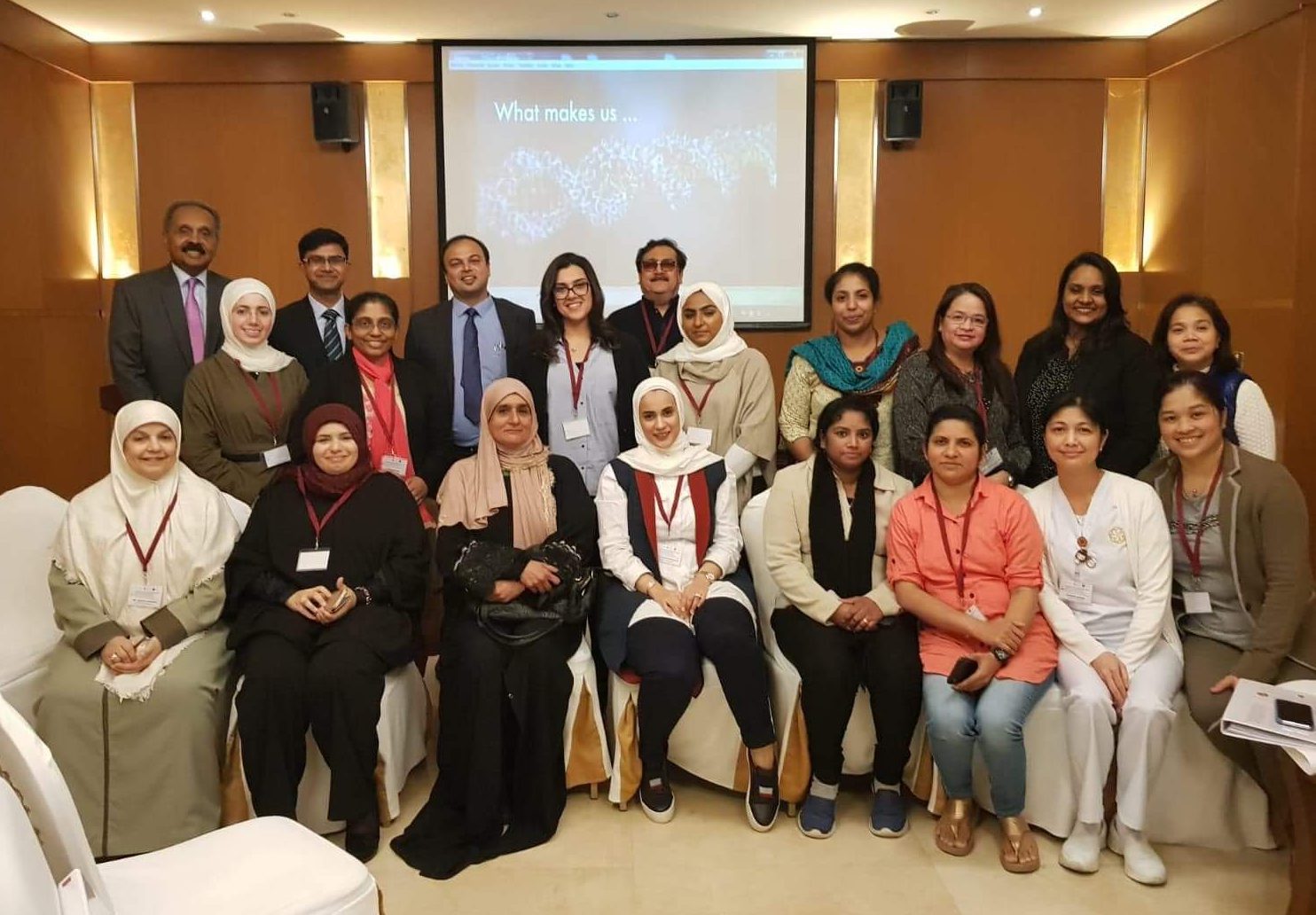Pregnancy is supposed to be a time of excitement, happiness, and full of joyful moments. But 1 in 5 pregnant women suffer from stress and mental health problems (primarily anxiety and depression).
In spite of the significant advancement of science, stigma and taboos still exist in our society with regards to mental health illnesses.
As a result, many mothers hesitate to speak and continue to suffer in silence.
Why mental wellbeing is important during pregnancy?
In severe cases of mental illness, mothers may even commit suicide. In fact, suicide due to severe mental health conditions, has remained a leading cause of death of new mothers worldwide.
Moreover, when left untreated during pregnancy, this can lead to many physical, mental, and behavioural problems of the child in the forthcoming years, poor parent-child bonding, and sometimes breakdown in marital relationship.
Fathers can also be affected too.
Stress and mental health conditions can also cause pregnancy complications (such as high blood pressure/preeclampsia, premature birth, and low birthweight babies), a fact many of us do not know.
Why it matters to the entire society?
During my career as an obstetrician, spanning over 18 years, I have seen the real impact of issue in the lives of the mothers and their families, and the adverse effects it can have on pregnancy outcomes.
I have seen how Perinatal Mental health conditions changed some lives forever, happy families have broken apart, many bright individuals losing their career, livelihood, and self-esteem.
Therefore, unsurprisingly, the health and social care often have to bear the huge financial burden of the consequences of untreated mental health of the mothers.
For example, in the UK, the NHS spends about £8.1 billion every year for this. 72% of this cost is due to the impact on the child, rather than the mother.
No one is immune from having mental health problems during pregnancy. In my clinic, I have seen women from all walks of life and socio-economic and cultural background.
We need to remember that she can be one of our family members, friend, neighbour, colleague or an employee.
Therefore, we all need to be aware and supportive of mothers during pregnancy and parenthood journey.

How my own journey into Perinatal Mental Health began?
Like most of the other doctors around the world, I hardly received robust information on Perinatal Mental Health when I obtained my medical qualification or had preregistration medical training.
It was a chance encounter in the early days of my Post Graduate Obstetrics training that gave me my direction.
One of the patients that I met was a mother who had developed Postpartum psychosis the day following her childbirth, but it was her husband who gave me pause for thought. He came up to me and asked “Could you please tell me what could have been done during pregnancy to prevent this serious condition of my wife?”
This began my quest to study the different maternal mental health conditions that pregnant women can face and I realised that so many things can be done during pregnancy to prevent and minimise the risk of developing mental illnesses following childbirth.
What can be done to reduce suffering from Perinatal Mental Health conditions?
As a Consultant Obstetrician in Perinatal Mental Health, I see every day that with effective treatment, support and care, full recovery is possible.
Therefore, the first step to prevent endless suffering and pain is an early diagnosis and treatment. Every pregnant woman should be informed about the signs and symptoms, and encouraged to seek help.
We must remain optimistic and reassure mothers that mental health conditions are NOT a sign of being a bad parent or weak personality or a lack of confidence.
Sadly, in spite of its high prevalence, the mental health care during pregnancy has remained neglected in every part of the world.
I found this shocking and I wanted to do something about it.
This is why I started tirelessly campaign for better Perinatal Mental Care pathways within the Maternity Units all across the world. I am so pleased to see the encouraging response from the wider society to join the campaign.
“Just as the body changes in pregnancy, so can the mind” – UK MBRRACE Report (2016)
How we can ensure happiness, health and wellbeing during pregnancy?
I believe it’s vital to promote health and wellbeing during every pregnancy, regardless of the pregnancy outcome, and this can only be achieved through the participation of the entire community.
We must encourage people to talk about the benefits good mental health, which is key to achieve happiness and good health.
 This is why I founded the charity, International Forum for Wellbeing in Pregnancy (IFWIP). It’s a global platform, which brings everyone together to talk about, and raise awareness of, the wellbeing of mothers during pregnancy. The Forum gives a voice to those who have concerns and a place to share information and educate.
This is why I founded the charity, International Forum for Wellbeing in Pregnancy (IFWIP). It’s a global platform, which brings everyone together to talk about, and raise awareness of, the wellbeing of mothers during pregnancy. The Forum gives a voice to those who have concerns and a place to share information and educate.
It’s not just mothers who can benefit from this website because the education must include all family members and indeed society in general. We are often too quick to judge and ignorant of the challenges that mothers go through.
Awareness is perhaps the only way to remove the shame, guilt, isolation, and stigma, which often accompany these health conditions which can force mothers to suffer in silence.
IFWIP is dedicated to raising awareness and advocate mental wellbeing in every pregnancy in the world. Our vision has been accepted globally and we have been invited to share our values in many part of the world.
We created history during an event at the UK Parliament last year (2018), where the discussions reached over 6 million Twitter impressions, making IFWIP the world’s biggest conversation on wellbeing during pregnancy.
As the mission statement says we are “celebrating the indomitable spirit of humanity in every journey through pregnancy”. After all, children are the future and their lives depend on the success of their birth and the continued support from their mothers.
Therefore, our journey continues together with you…

Dr Raja Gangopadhyay
Dr Raja Gangopadhyay obtained his MBBS degree and then a Masters in Obstetrics and Gynaecology (MD) with distinction from Calcutta University, India. Then he traveled to the UK for higher training and completed his speciality training in Obstetrics and Gynaecology from the London Deanery and obtained Membership from the Royal College of Obstetrician & Gynaecologists. He is currently working as a Consultant Obstetrician and Gynaecologist with a special interest in Perinatal Mental Health at the West Hertfordshire Hospitals NHS Trust.





![Powerful Pride documentary Legendary Children [All Of Them Queer] streaming very soon](https://globalindianstories.org/wp-content/uploads/2025/06/Legendary-streaming-release-featured-100x75.jpg)

